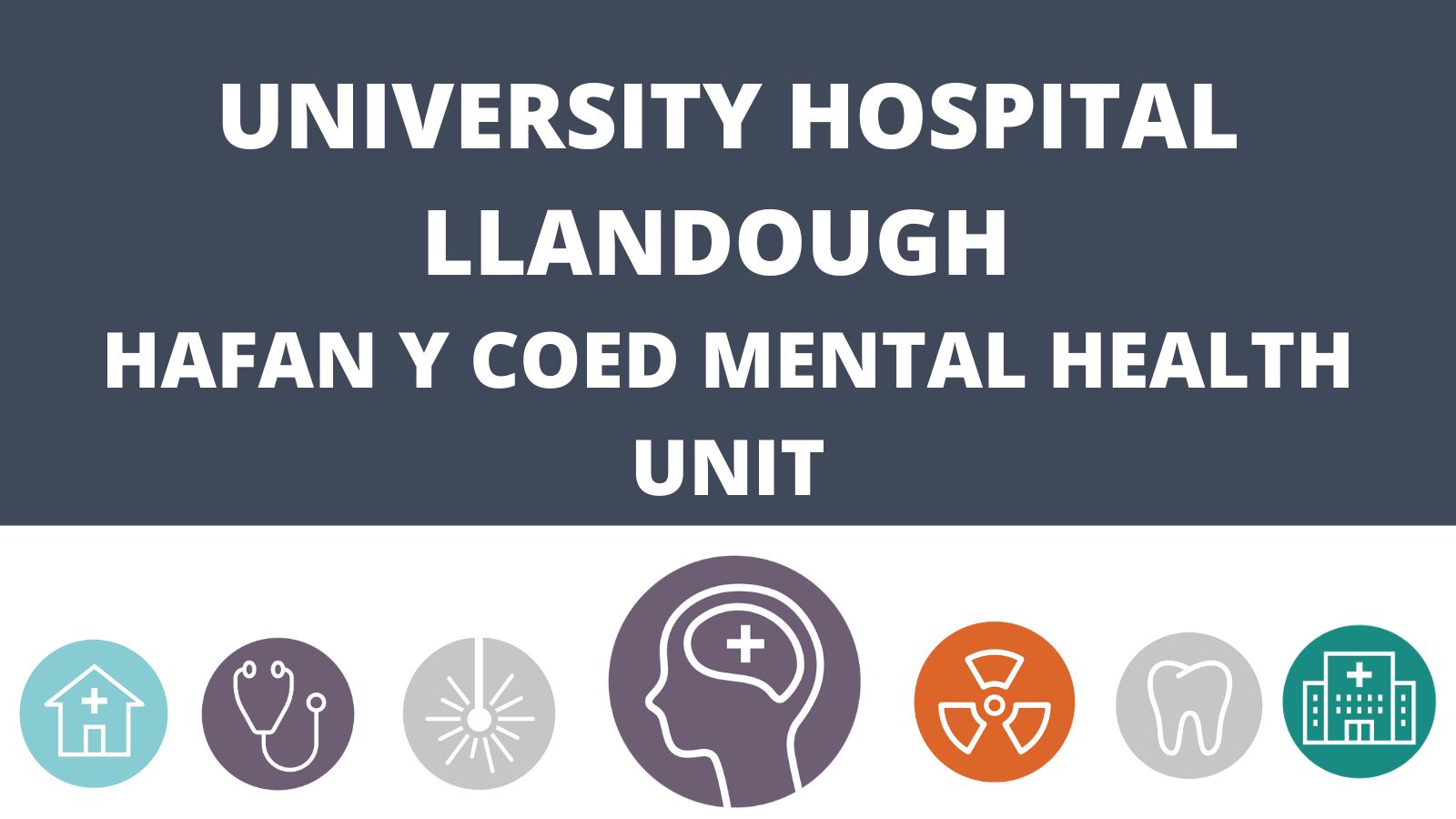Immediate improvement required at a specialist Mental Health Unit in Cardiff
Healthcare Inspectorate Wales (HIW) has issued a report (23 October 2024) following a three-day inspection at Hafan y Coed, a mental health unit at the University Hospital Llandough, run by Cardiff and the Vale University Health Board.

The unannounced inspection of the unit in Penarth focussed on two adult mixed-gender wards: Cedar Ward's Crisis Assessment Unit and Alder Ward's Psychiatric Intensive Care Unit.
During the inspection we identified several issues which led us to seek assurance that immediate action would be taken to improve patient safety. This included inaccurate recording of patient restraint incidents and the involvement of untrained staff in these incidents - issues that were also identified during a previous inspection in January 2023. Additionally, inspectors were concerned about building maintenance problems which posed health and safety risks, including swollen floors that prevented fire doors from closing and several trip hazards.
Inspectors observed that the care team on both wards only consisted of two types of healthcare professionals, which raised concerns about the lack of diverse expertise in decision-making. Immediate action was requested to include a broader range of disciplines in patient care decisions to meet national standards.
The staff we spoke with were passionate about their roles, and enthusiastic about how they supported and cared for the patients. Inspectors witnessed staff treating patients with respect and kindness and patients we spoke to generally gave positive feedback on their care. However, inspectors did witness instances where staff did not respond to patients who needed help. The health board must explore ways to ensure staff are able to engage with patients and respond in a timely manner. We have recommended that the health board considers the installation of emergency assistance call points within patient bedrooms and throughout the wards.
It was positive to note the high staff compliance with mandatory equality, diversity and human rights training. We were told that some staff had completed additional voluntary training to improve their awareness and understanding of equality and diversity issues, which was recognised as good practice. However, inspectors noted low compliance with infection prevention and control training, gaps in daily cleaning schedules, and a lack of evidence showing that communal facilities were regularly cleaned.
Both wards had strong procedures for safely managing medicines and monitoring the Mental Health Act. While the clinical record-keeping and patient care planning were generally good on Alder Ward, Cedar Ward had poor record-keeping overall. Many patient intervention plans were incomplete and not tailored to individual needs. The health board must establish strong governance processes to enhance the quality of patient records.
There were adequate staffing levels across both wards, but we noted a high turnover of staff and a high reliance on agency staff to fill vacant shifts on the Cedar Ward. The health board must conduct an establishment review to ensure the staffing numbers, skillset and experience amongst staff are appropriate to support patient safety and provide patient-centred care. We found that ward staff meetings were not regularly taking place, and there had been no meetings within the last six months prior to our inspection. Regular ward staff meetings are important to ensure effective communication, address concerns, and to promote coordinated patient care.
It was positive to see that Alder Ward had an Activities Coordinator, and patients were given appropriate therapeutic activities. However, neither ward had an Occupational Therapist, and inspectors were not assured that Cedar Ward patients were had access to adequate activities to support their health and wellbeing. The health board needs to do more to ensure that all patients can take part in personalised therapeutic and social activities to help with their recovery.
Each patient had their own bedroom with ensuite shower facilities, which maintained their privacy and dignity. Inspectors noticed that monitor cabinets, used to observe patients without disturbance them in their rooms, were left unlocked which compromised the privacy, safety and dignity of patients. We were also concerned that most rooms did not have privacy screening for the ensuite bathrooms, or curtains to stop light from external windows, and recommend that these are installed.
Most staff who completed our questionnaire felt that senior managers were not visible, and that communication between senior management and staff was not effective. The health board should reflect on this feedback and investigate whether improvements in relation to management visibility and communication with staff could be made.
There were well established processes in place to ensure incidents or key issues were being effectively investigated, escalated and scrutinised to prevent reoccurring issue. However, improvements are needed to make sure actions are completed quickly and lessons learnt are shared.
Alun Jones, Chief Executive of Healthcare Inspectorate Wales said:
Our recent inspection at Hafan y Coed Mental Health Unit has highlighted areas requiring immediate improvement to enhance the quality of care provided. It is disappointing that some areas had not improved since our previous inspections, and we will be working with the health board to ensure these issues are addressed. However, it is encouraging to see that the health board has already begun addressing some of these concerns, and staff were receptive to our feedback.